Act 1
At the abandoned Greek camp outside the walls of Troy
The Trojans are celebrating apparent deliverance from ten years of siege by the Greeks (also named the Achaeans in the opera). They see the large wooden horse left by the Greeks, which they presume to be an offering to Pallas Athene. Unlike all the other Trojans, however, Cassandre is mistrustful of the situation. She foresees that she will not live to marry her fiancé, Chorèbe. Chorèbe appears and urges Cassandre to forget her misgivings. But her prophetic vision clarifies, and she foresees the utter destruction of Troy. When Andromaque silently walks in holding her son Astyanax by the hand, the celebration halts.
A captive, Sinon, is brought in. He lies to King Priam and the crowd that he has deserted the Greeks, and that the giant wooden horse they have left behind was intended as a gift to the gods to ensure their safe voyage home. He says the horse was made so big that the Trojans would not be able to move it into their city, because if they did they would be invincible. This only makes the Trojans want the horse inside their city all the more.
Énée then rushes on to tell of the devouring of the priest Laocoön by a sea serpent, after Laocoön had warned the Trojans to burn the horse. Énée interprets this as a sign of the goddess Athene's anger at the sacrilege. Against Cassandre's futile protests, Priam orders the horse to be brought within the city of Troy and placed next to the temple of Pallas Athene. There is suddenly a sound of what seems to be the clashing of arms from within the horse, and for a brief moment the procession and celebrations stop, but then the Trojans, in their delusion, interpret it as a happy omen and continue pulling the horse into the city. Cassandre has watched the procession in despair, and as the act ends, resigns herself to death beneath the walls of Troy.
Act 2
Before the act proper has started, the Greek soldiers hidden in the wooden horse have come out and begun to destroy Troy and its citizens.
Scene 1: Palace of Énée
With fighting going on in the background, the ghost of Hector visits Énée and warns him to flee Troy for Italy, where he will build a new Troy. After Hector fades, the priest Panthée conveys the news about the Greeks hidden in the horse. Ascagne appears with news of further destruction. At the head of a band of soldiers, Chorèbe urges Énée to take up arms for battle. All resolve to defend Troy to the death.
Scene 2: Palace of Priam
Several of the Trojan women are praying at the altar of Vesta/Cybele for their soldiers to receive divine aid. Cassandre reports that Énée and other Trojan warriors have rescued Priam's palace treasure and relieved people at the citadel. She prophesies that Énée and the survivors will found a new Troy in Italy. But she also says that Chorèbe is dead, and resolves to die herself. The other women acknowledge the accuracy of Cassandre's prophecies and their own error in dismissing her. Cassandre then calls upon the Trojan women to join her in death, to prevent being defiled by the invading Greeks. One group of women admits to fear of death, and Cassandre dismisses them from her sight. The remaining women unite with Cassandre in their determination to die. A Greek captain observes the women during this scene with admiration for their courage. Greek soldiers then come on the scene, demanding the Trojan treasure from the women. Cassandre defiantly mocks the soldiers, then suddenly stabs herself. Polyxène takes the same dagger and does likewise. The remaining women scorn the Greeks as being too late to find the treasure, and commit mass suicide, to the soldiers' horror. Cassandre summons one last cry of "Italy!" before collapsing, dead.
Act 3
Didon's throne-room at Carthage
The Carthaginians and their queen, Didon, are celebrating the prosperity that they have achieved in the past seven years since fleeing from Tyre to found a new city. Didon, however, is concerned about Iarbas, the Numidian king, not least because he has proposed a political marriage with her. The Carthaginians swear their defence of Didon, and the builders, sailors and farmers offer tribute to Didon.
In private after these ceremonies, Didon and her sister Anna then discuss love. Anna urges Didon to remarry, but Didon insists on honoring the memory of her late husband Sichée. The bard Iopas then enters to tell of an unknown fleet that has arrived in port. Recalling her own wanderings on the seas, Didon bids that these strangers be made welcome. Ascagne enters, presents the saved treasure of Troy, and relates the Trojans' story. Didon acknowledges that she knows of this situation. Panthée then tells of the ultimate destiny of the Trojans to found a new city in Italy. During this scene, Énée is disguised as an ordinary sailor.
Didon’s minister Narbal then comes to tell her that Iarbas and his Numidian army are attacking the fields surrounding Carthage and are marching on the city. But Carthage does not have enough weapons to defend itself. Énée then reveals his true identity and offers the services of his people to help Carthage. Didon accepts the offer, and Énée entrusts his son Ascagne to Didon's care, but he suddenly dries his tears and joins the Carthaginians and Trojans in preparing for battle against the Numidians.
Act 4
Scene 1: Royal Hunt and Storm (mainly instrumental)
This scene is a pantomime with primarily instrumental accompaniment, set in a forest with a cave in the background. A small stream flows from a crag and merges with a natural basin bordered with rushes and reeds. Two naiads appear and disappear, but return to bathe in the basin. Hunting horns are heard in the distance, and huntsmen with dogs pass by as the naiads hide in the reeds. Ascagne gallops across the stage on horseback. Didon and Énée have been separated from the rest of the hunting party. As a storm breaks, the two take shelter in the cave. At the climax of the storm, nymphs with dishevelled hair run to-and-fro over the rocks, gesticulating wildly. They break out in wild cries of "a-o" (sopranos and contraltos) and are joined by fauns, sylvans, and satyrs. The stream becomes a torrent, and waterfalls pour forth from the boulders, as the chorus intones "Italie! Italie! Italie!". A tree is hit by lightning, explodes and catches fire, as it falls to the ground. The satyrs, fauns, and sylvans pick up the flaming branches and dance with them in their hands, then disappear with the nymphs into the depths of the forest. The scene is slowly obscured by thick clouds, but as the storm subsides, the clouds lift and dissipate.
Scene 2: The gardens of Didon by the shore
The Numidians have been beaten back, and both Narbal and Anna are relieved at this. However, Narbal worries that Didon has been neglecting the management of the state, distracted by her love for Énée. Anna dismisses such concerns and says that this indicates that Énée would be an excellent king for Carthage. Narbal reminds Anna, however, that the gods have called Énée's final destiny to be in Italy. Anna replies that there is no stronger god than love.
After Didon's entry, and dances from the Egyptian dancing girls, the slaves, and the Nubian slave girls, Iopas sings his song of the fields, at the queen's request.
She then asks Énée for more tales of Troy. Énée reveals that after some persuading, Andromaque eventually married Pyrrhus, the son of Achilles, who killed Hector, Andromaque's earlier husband. Hearing about Andromaque remarrying, Didon then feels resolved regarding her lingering feelings of faithfulness to her late husband. Alone, Didon and Énée then sing a love duet. At the end of the act, as Didon and Énée slowly walk together towards the back of the stage in an embrace, the god Mercury appears and strikes Énée's shield, which the hero has cast away, calling out three times, "Italie!"
Act 5
Scene 1: The harbour of Carthage
A young Phrygian sailor, Hylas, sings his song of longing for home, alone. Two sentries mockingly comment that he will never see his homeland again. Panthée and the Trojan chieftains discuss the gods' angry signs at their delay in sailing for Italy. Ghostly voices are heard calling “Italie! Italie! Italie!”. The sentries, however, remark that they have good lives in Carthage and do not want to leave.
Énée then comes on stage, singing of his despair at the gods' portents and warnings to set sail for Italy, and also of unhappiness at his betrayal of Didon with this news. The ghosts of Priam, Chorèbe, Hector and Cassandre appear and relentlessly urge Énée to proceed on to Italy. Énée gives in and realizes that he must obey the gods' commands, but also realizes his cruelty and ingratitude to Didon as a result. He then orders his comrades to prepare to sail that very morning, before sunrise.
Didon then appears, appalled at Énée's attempt to leave in secret, but still in love with him. Énée pleads the messages from the gods to move on, but Didon will have none of this. She pronounces a curse on him as she leaves. The Trojans shout “Italie!”.
Scene 2: Didon's apartment at dawn
Didon asks Anna to plead with Énée one last time to stay. Anna acknowledges blame for encouraging the love between her sister and Énée. Didon angrily counters that if Énée truly loved her, he would defy the gods, but then asks her to plead with him for a few days' additional stay.
The crowd has seen the Trojans set sail. Iopas conveys the news to Didon. In a rage, she demands that the Carthaginians give chase and destroy the Trojans' fleet, and wishes that she had destroyed the Trojans upon their arrival. She then decides to offer sacrifice, including destroying the Trojans' gifts to her and hers to them. Narbal is worried about Didon and tells Anna to stay with her sister, but the queen orders Anna to leave.
Alone, she resolves to die, and after expressing her love for Énée one final time, prepares to bid her city and her people farewell.
Scene 3: The palace gardens
A sacrificial pyre with Énée's relics has been built. Priests enter in a procession. Narbal and Anna expound curses on Énée to suffer a humiliating death in battle. Didon says it is time to finish the sacrifice and that she feels peace enter her heart (this happens in a ghostly descending chromatic line recalling the appearance of Hector’s ghost in Act II). She then ascends the pyre. She removes her veil and throws it on Énée's toga. She has a vision of a future African warrior, Hannibal, who will rise and attack Rome to avenge her.
Didon then stabs herself with Énée's sword, to the horror of her people. But at the moment of her death, she has one last vision: Carthage will be destroyed, and Rome will be "immortal". The Carthaginians then utter one final curse on Énée and his people to the music of the Trojan march, vowing vengeance for his abandonment of Didon, as the opera ends.


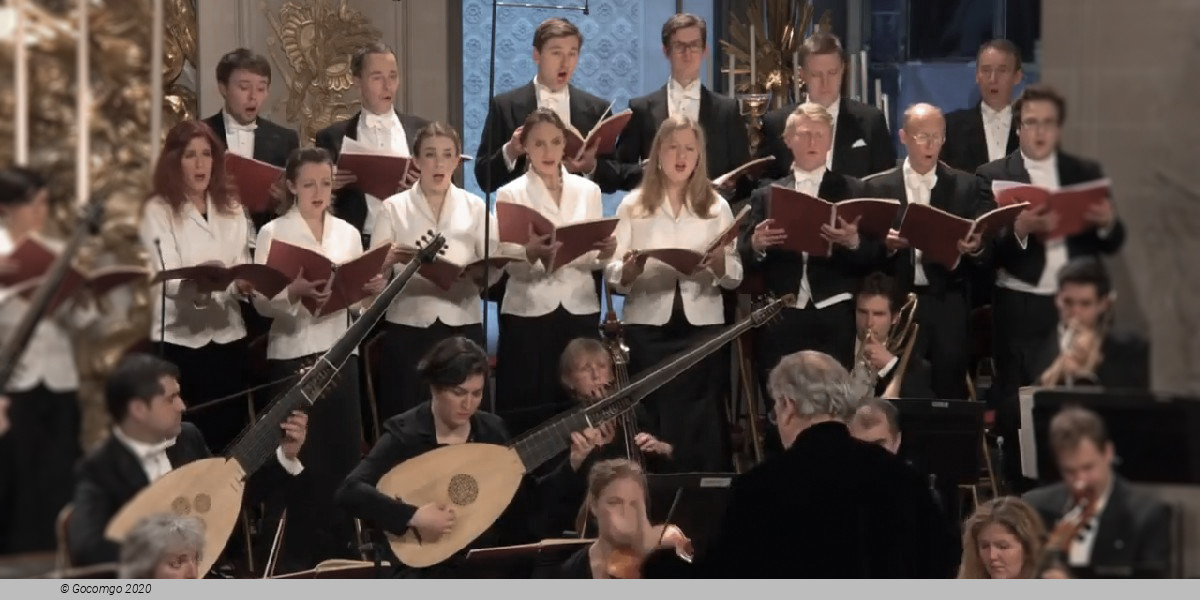
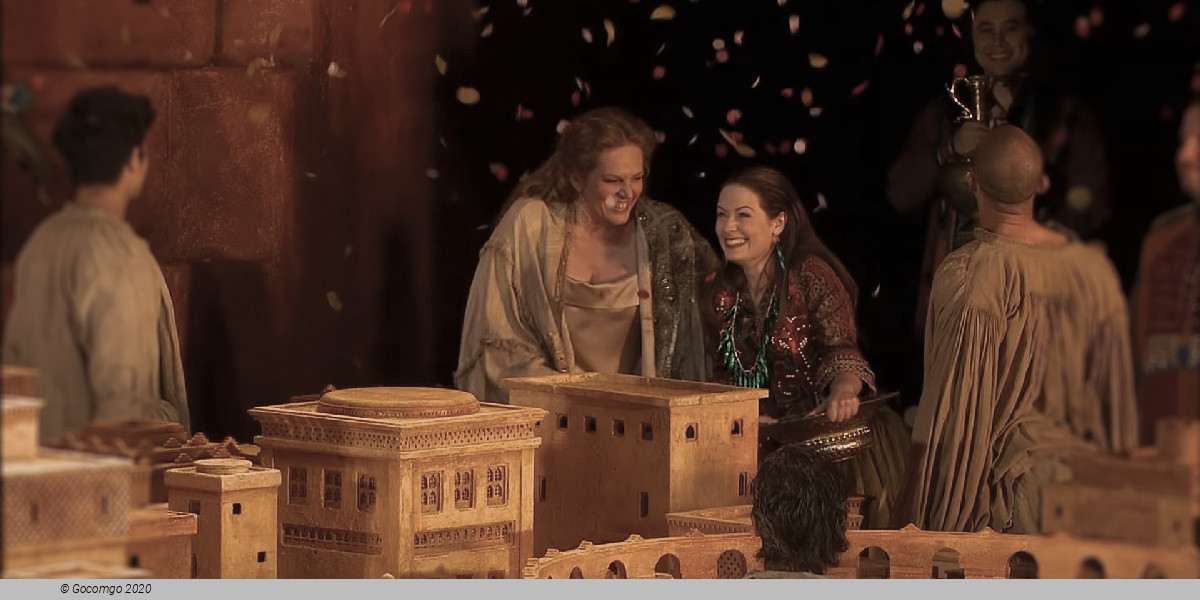
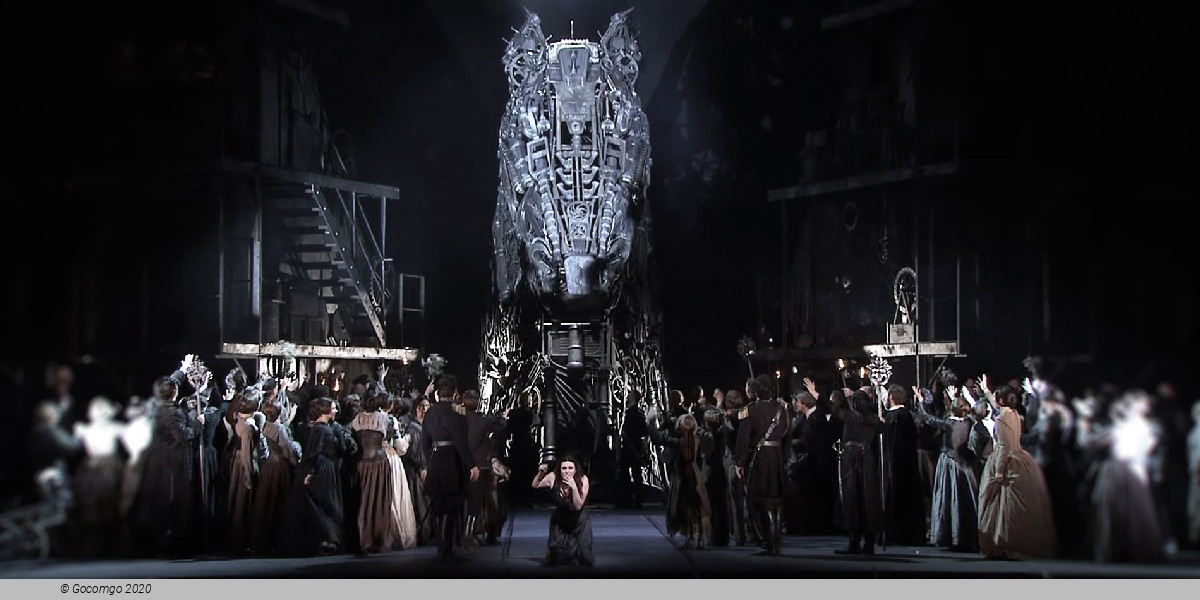
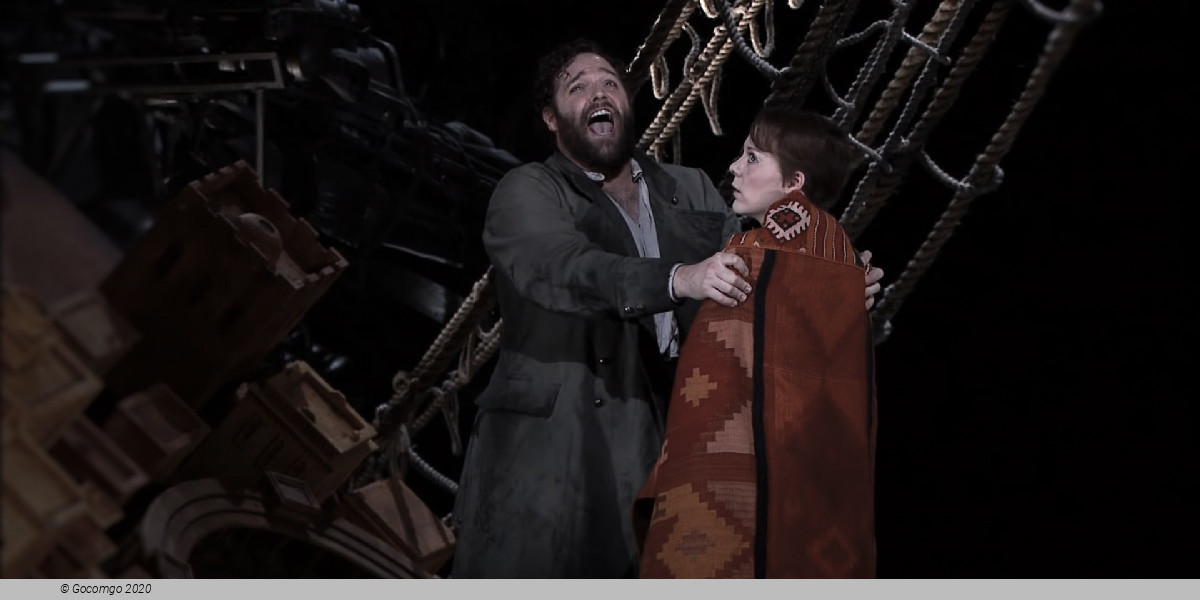
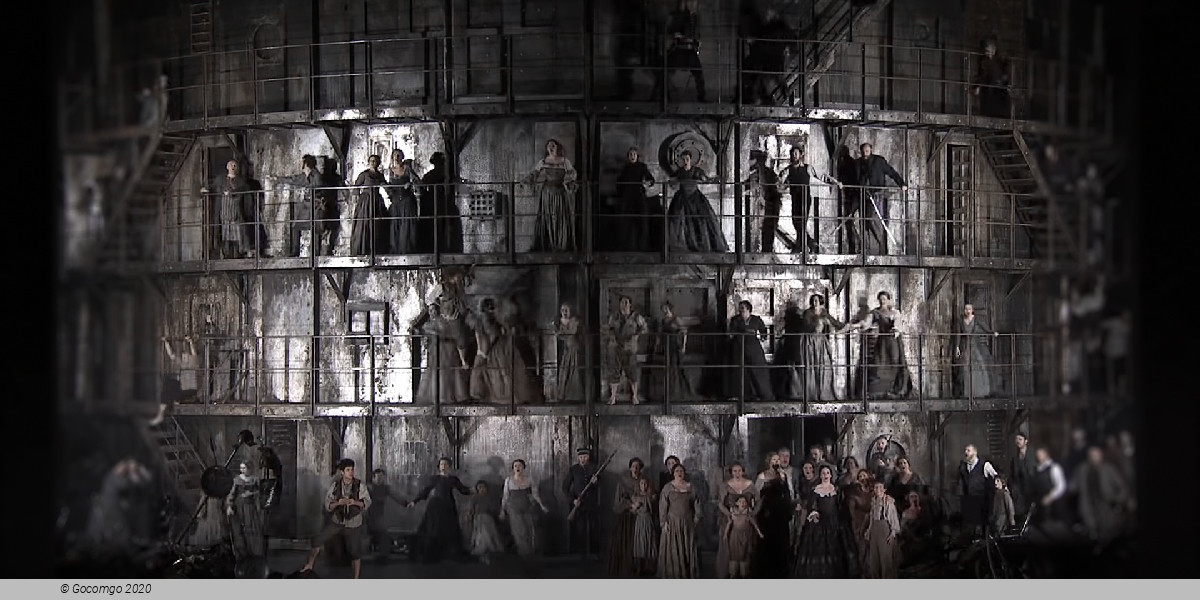
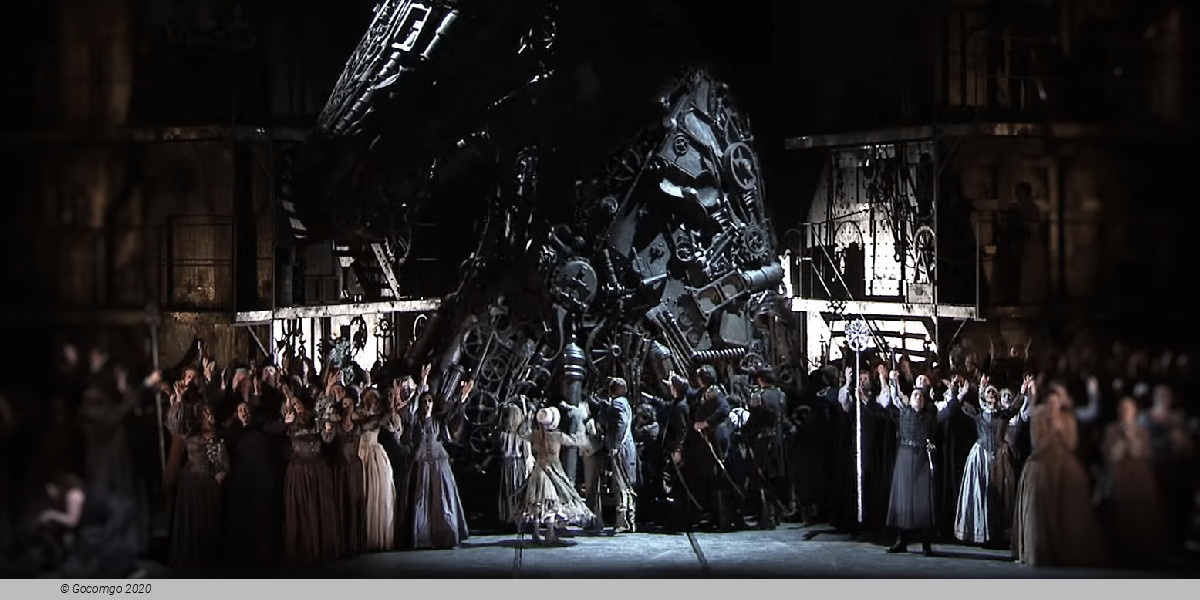
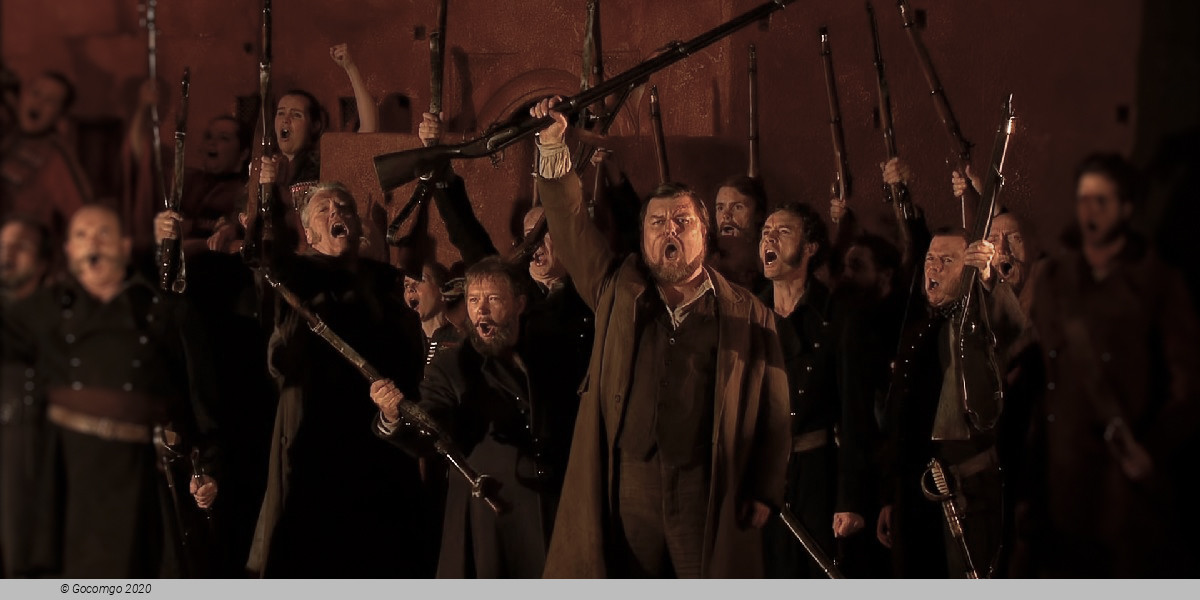
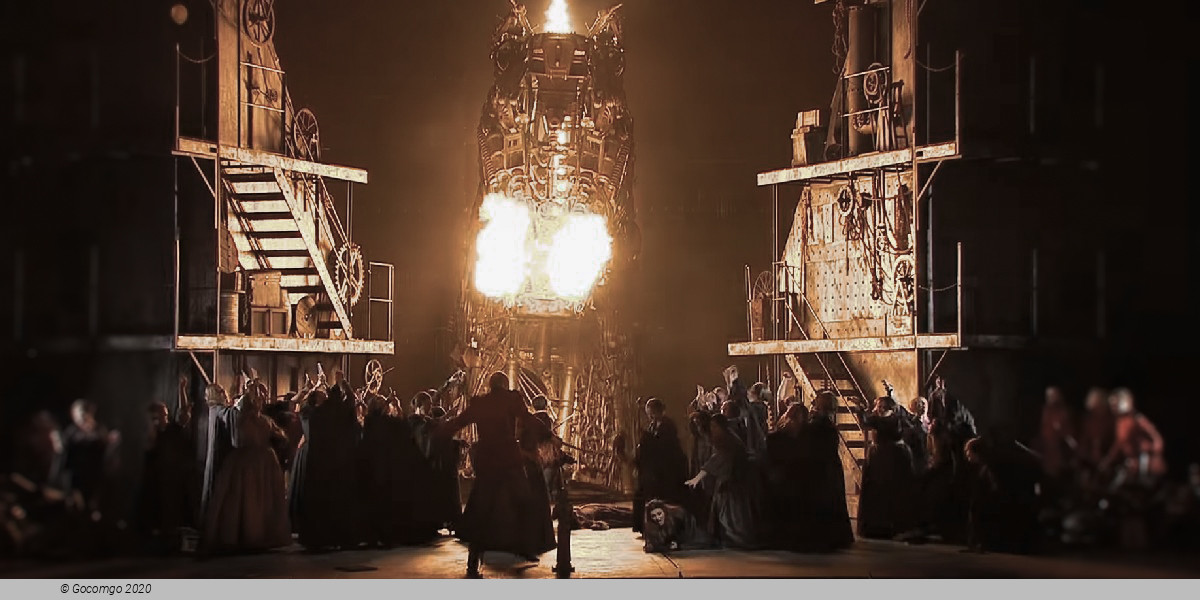
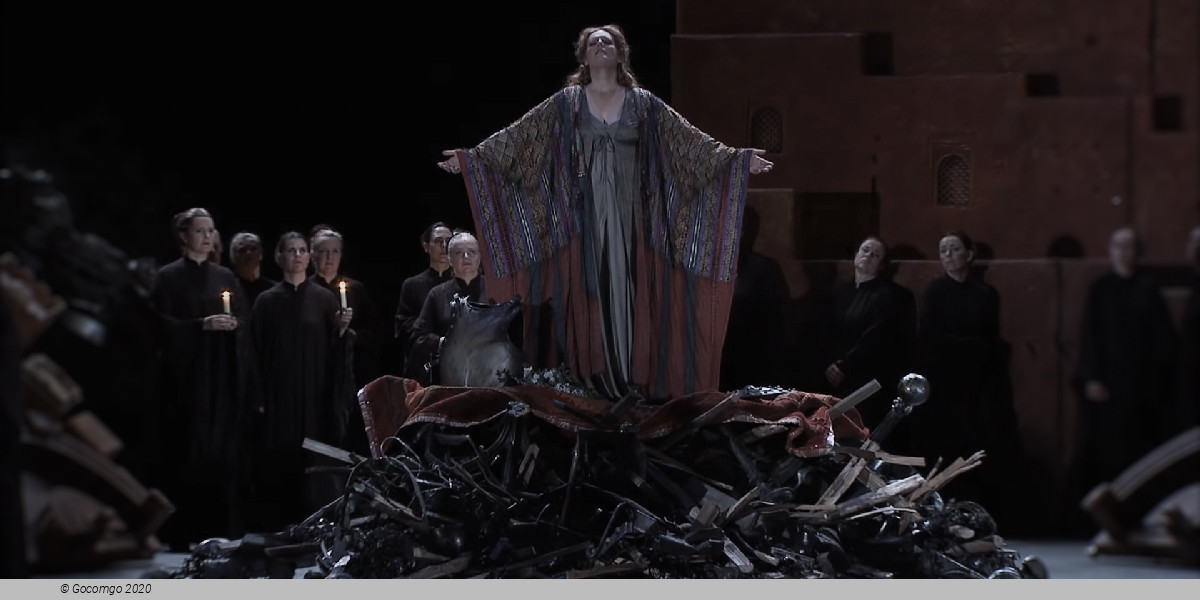
 Hofstallgasse 1
Hofstallgasse 1